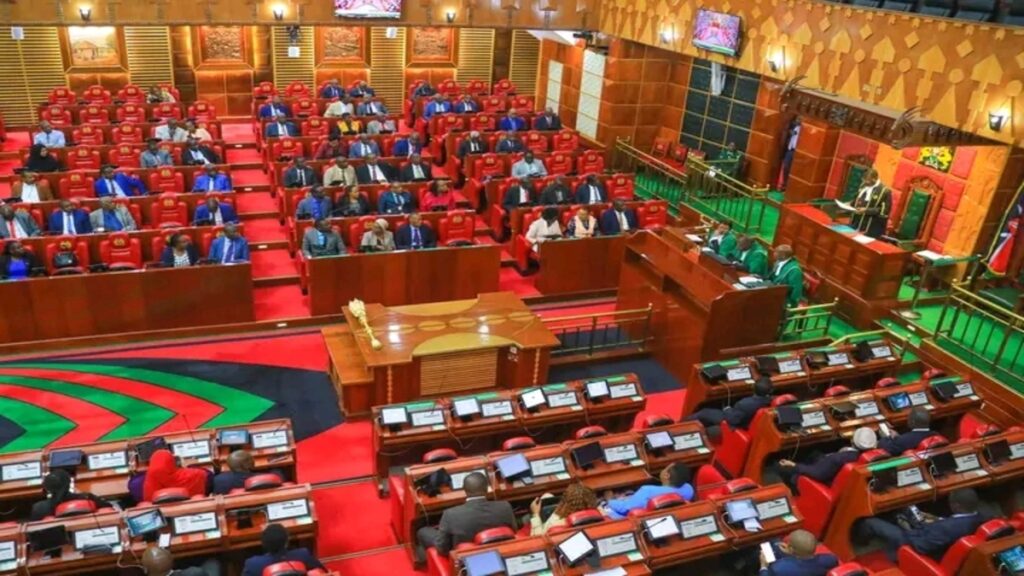In a recent parliamentary session, Members of Parliament (MPs) voiced strong opposition to a proposal aimed at merging all education bursaries into a single fund. The debate has sparked concerns that such a move could hinder access to financial support for the most vulnerable students across the country.

The proposal suggests consolidating various education bursaries into one central fund. Proponents argue that this would streamline the distribution of financial aid and reduce administrative costs. However, many MPs believe that merging these funds could lead to significant drawbacks, particularly for needy students who rely on targeted assistance.
During the parliamentary session, the majority of MPs expressed their discontent with the proposed merger. Only two MPs, Raphael Wanjala (Budalangi) and Mark Nyamita (Uriri), supported the motion, highlighting a clear divide in opinion. Many lawmakers raised concerns about the potential consequences of such a significant change in policy.
The primary concern among MPs is that a single fund may not adequately address the diverse needs of students from different backgrounds. Current bursary schemes are designed to cater to specific groups, including those from low-income families, orphans, and students with disabilities. By merging these funds, MPs fear that resources could be allocated in a way that overlooks the unique challenges faced by these groups.
MP John Mwangi articulated the fears of many when he stated, “We risk locking out those who need help the most. Each bursary has its purpose and target group. A one-size-fits-all approach will not work.” His comments resonated with colleagues who worry that a centralised system may lead to bureaucratic inefficiencies and delays in disbursement.
If the proposal goes through, it could create barriers for students who currently benefit from specific bursary programmes. For instance, orphans and children from impoverished backgrounds often receive tailored support that addresses their unique circumstances. A merged fund might dilute this targeted assistance, leaving many students without the help they need to pursue their education.
Turbo MP Janet Sitienei echoed these concerns, questioning the fairness of decentralising funds for students already reliant on bursaries. “It will be unfair to very needy students to decentralise the fund. What will happen to students who are already in school because of bursaries?” she asked.
Saku MP Raso Dido warned of a potential mass dropout of students if the National Government Constituencies Development Fund (NG-CDF) bursary component is removed: “If you give the responsibility to Jogoo House, the many needy students who are going to school today may not be able to go there,” he cautioned.
Maraket West MP Timothy Toroitich also warned against disrupting a functioning system. “The elephant is the issue of duplication. Let us develop a system where duplication is avoided, whereby when one student is given (money) through presidential bursary, the same student cannot benefit from NG-CDF,” he said.
Only two MPs supported the motion to merge the bursaries, with Nyamita adding that real free primary and secondary education should be ensured. “I fully support the proposal to collapse all the bursaries; the rider is that we are offering real free primary and secondary education and even [in] TVETs,” he said.
Consolidation proponents cited issues such as a lack of transparent selection criteria, delayed disbursements, and insufficient coverage of education costs, leading to gaps that parents must fill. This debate comes even as the High Court has declared the NG-CDF unconstitutional.
Kilifi North MP Owen Baya was among those expressing skepticism about the Ministry of Education’s ability to manage consolidated funds effectively. “We have no trust and confidence that the Ministry of Education will handle the bursaries,” he remarked. “If we make the mistake of taking this money to the Ministry of Education, we all know where this money will go,” he added, emphasizing that local MPs are better suited to identify and serve the educational needs of vulnerable children in their constituencies.
The idea of consolidating bursary schemes into a single fund has been lauded by education reform advocates who argue that it could reduce bureaucratic inefficiencies and ensure that financial aid is directed toward children who need it most. However, MPs’ concerns raise significant questions about feasibility and integrity, particularly when historical mismanagement issues within the Ministry are considered.
As discussions continue, it remains unclear what direction the government will take regarding education funding. The proposal has been met with significant resistance in Parliament, indicating a strong desire among lawmakers to protect existing bursary schemes.
In light of these developments, it is crucial for stakeholders—parents, educators, and community leaders—to engage in dialogue about how best to support students in need. The importance of education cannot be overstated; it is a key driver of personal and national development.
The push to merge all education bursaries into one fund has raised critical questions about equity and accessibility in education funding. As MPs stand firm against this proposal, they highlight the importance of tailored financial support for vulnerable students. The ongoing debate serves as a reminder of the need for careful consideration when it comes to policies affecting education—a fundamental right for every child.
In this pivotal moment for education funding in Kenya, it is essential that policymakers listen to those most affected by these decisions: the students themselves. Their future depends on it.



















